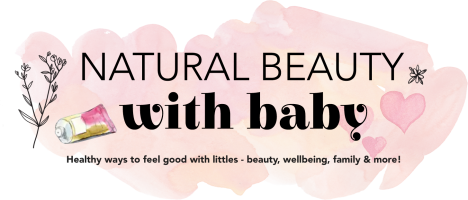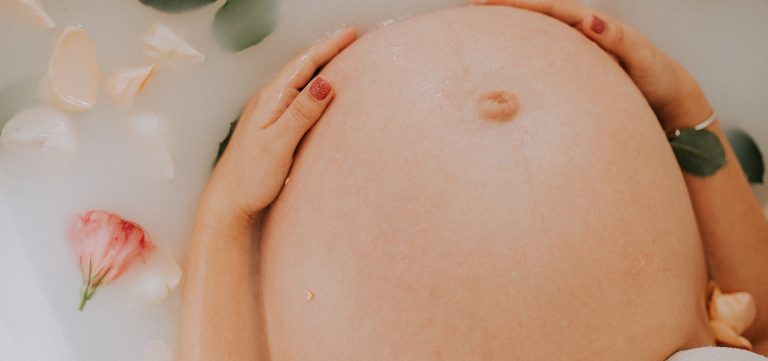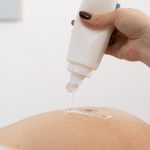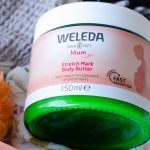Welcome back, my dear! Today’s share is all about creating a pregnancy safe skincare routine and thinking about how we can change our current skincare routine so that we’re confident it’s safe for pregnancy and won’t harm our unborn baby.
When we fall pregnant – especially for for the first time, every substance that we put into our body suddenly comes under scrutiny. As a first time mum, my diet was so important. I even had a spreadsheet of all the foods and drinks I should be having in a week to keep me in check!
Now, as a fourth time mum, I’m a lot more relaxed. But still, I want to eat only the healthiest foods and drinks, cut out alcohol and reduce my caffeine intake.
My skincare is just as important too. I need to know that no part of my routine will harm my baby, and there are so many questions to be asked – can we still use retinol and acids? Are essential oils safe for me to use in pregnancy? And what about synthetic fragrances?
In this article, I will answer all these questions and guide you into making the best skincare choices for your unborn child and yourself during pregnancy.
Our skin changes hugely during pregnancy, so let’s make a start and look at how you can adapt your routine to help yourself during this time of wonderful upheaval.
Adapting your current skincare routine during pregnancy
In my first pregnancy, my approach to creating a pregnancy safe skincare routine was way too drastic. I went through all my skin care products in a blind panic, scrutinising every ingredient on the EWG Database without any awareness of cosmetics safety, how skincare products are formulated, or the importance of the concentration of ingredients in formulas. I threw out a lot of stuff and emailed a lot of bewildered companies!
Let me take the bold step of saying that most skin care products you can buy are safe for use during pregnancy. Products must be developed within the boundaries of cosmetics laws, meaning they must be safe for everybody.
However, there are some areas where caution is advised – and here they are:
- Retinol
- Acids
- Fragrance
- Essential oils
- Sunscreens
- Acne treatments
Let’s look at them in more detail.
Is retinol safe in pregnancy?
Retinol, aka vitamin A, is a fantastic ingredient for skin. It helps skin cells to produce collagen and reduces the appearance of wrinkles. You can find it in many skincare products such as serums, night creams, and eye treatments.
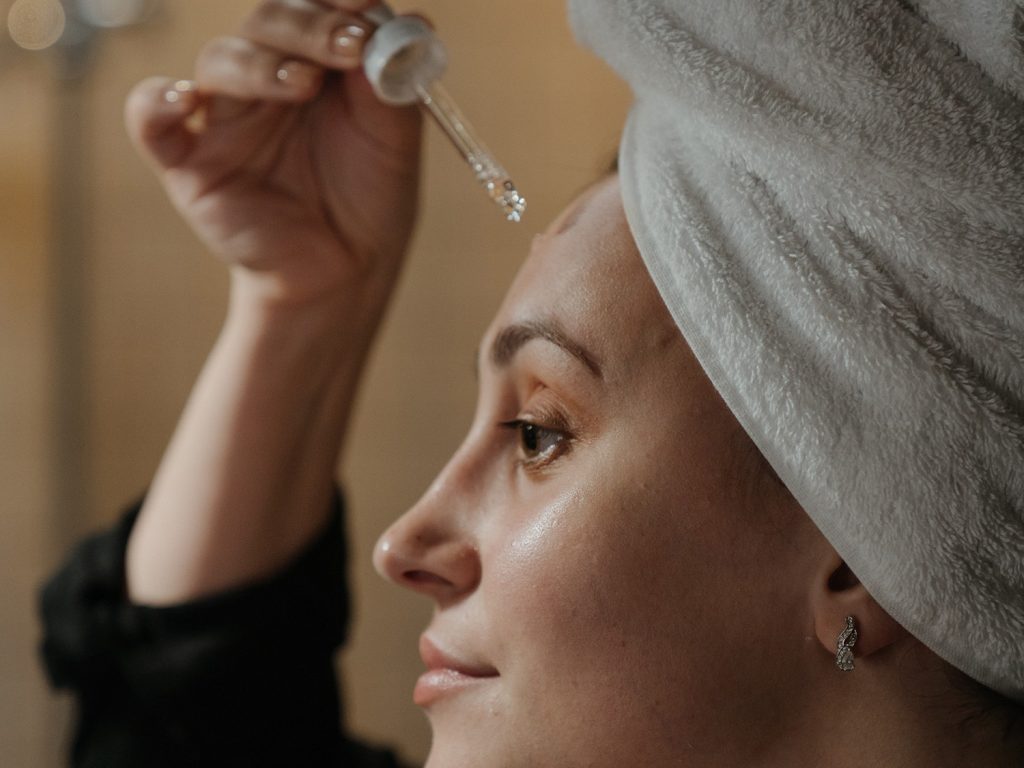
However, during pregnancy we are advised not use retinol products – we simply don’t know how much retinol is a safe dose.
What we do know is that retinoids taken by mouth cause birth defects, and there are 4 cases of topical tretinoin use causing birth defects. And we know that application to the skin leads to chemicals passing through to the baby via the placenta. So, it’s best to exercise caution and avoid retinol – those 9 months are short and precious!
Despite the evidence and advice, some women do continue use retinol based skincare products during pregnancy, perhaps in a cream rather than a serum where the dose is less concentrated.
The ingredients to look out for? Retinol, retinal, retinoic acid, retinyl palmitate.
Look into bakuchiol as a pregnancy safe alternative to retinol.
Safely using exfoliating acids during pregnancy
Exfoliating acids are often touted as a faster route to smoother, clearer skin and can be grouped into three kinds.
Alpha Hydroxy Acids (AHAs) are water soluble and suited to drier skins thanks to their hydrating effect. Some familiar acids in this group are lactic acid (mild), malic acid (mild), and glycolic acid (strong). They are completely safe to use during pregnancy. Use a sunscreen with them, however. Look out for products from REN and The Ordinary.
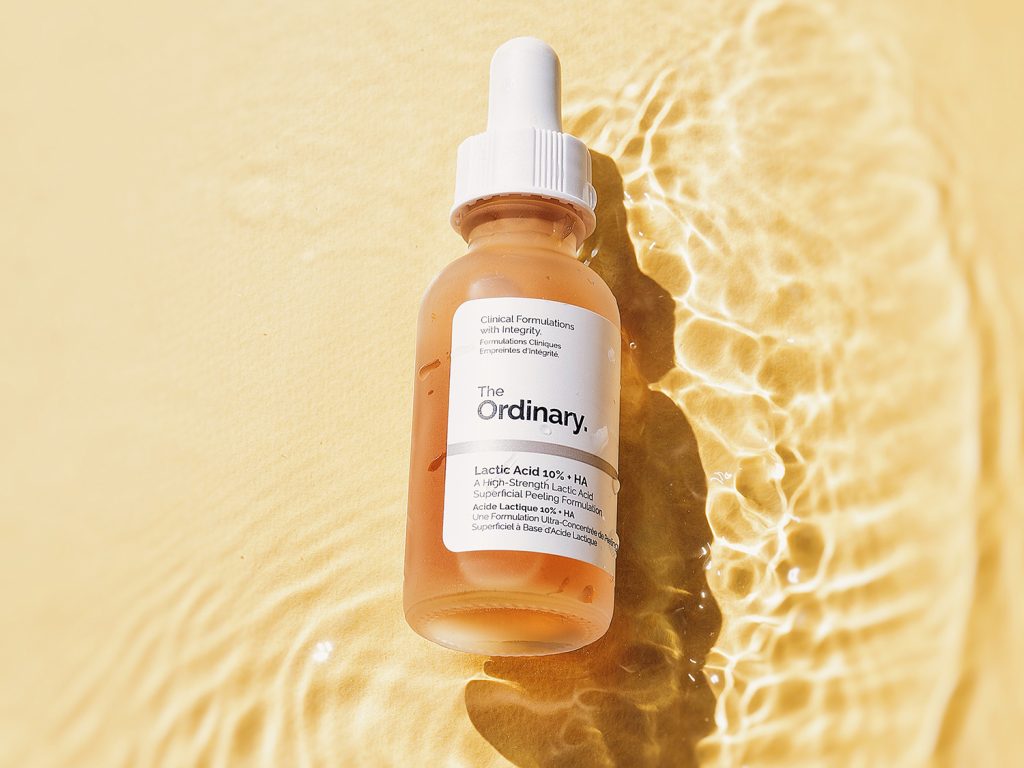
Beta Hydroxy Acids (BHAs) suited to oiler skins since salicylic acid is oil soluble. Products containing salicylic acid are generally considered safe for use in pregnancy in mild concentrations (2%) used once per day – although if you have any concerns, do check with your midwife or doctor. Products to try: Paula’s Choice and Biossance. Use a sunscreen with these.
Polyhydryoxy acids are the mildest of all chemical exfoliants and are best for sensitive skins. You don’t need to use a sunscreen with these (although you definitely should!). Look out for gluconolactone or gluconic acid. Try products from Typology.
Although these exfoliating acids are considered safe in pregnancy, you might find your skin becomes more sensitive to them, so experiment with a weaker acid or try using your exfoliating acid product less frequently.
Is synthetic fragrance safe during pregnancy?
All fragrance ingredients in the UK are tested to ensure their safety. However, it goes without saying that synthetic fragrance has a bad reputation. This is probably due to its potential to contain chemicals that could be harmful to human health. Fragrance formulations are often shrouded in mystery, and mistrust arises due to a lack of transparency regarding ingredients – including endocrine disrupting phthalates and benzophenone. Luckily, these ingredients are gradually being withdrawn from all cosmetic products.
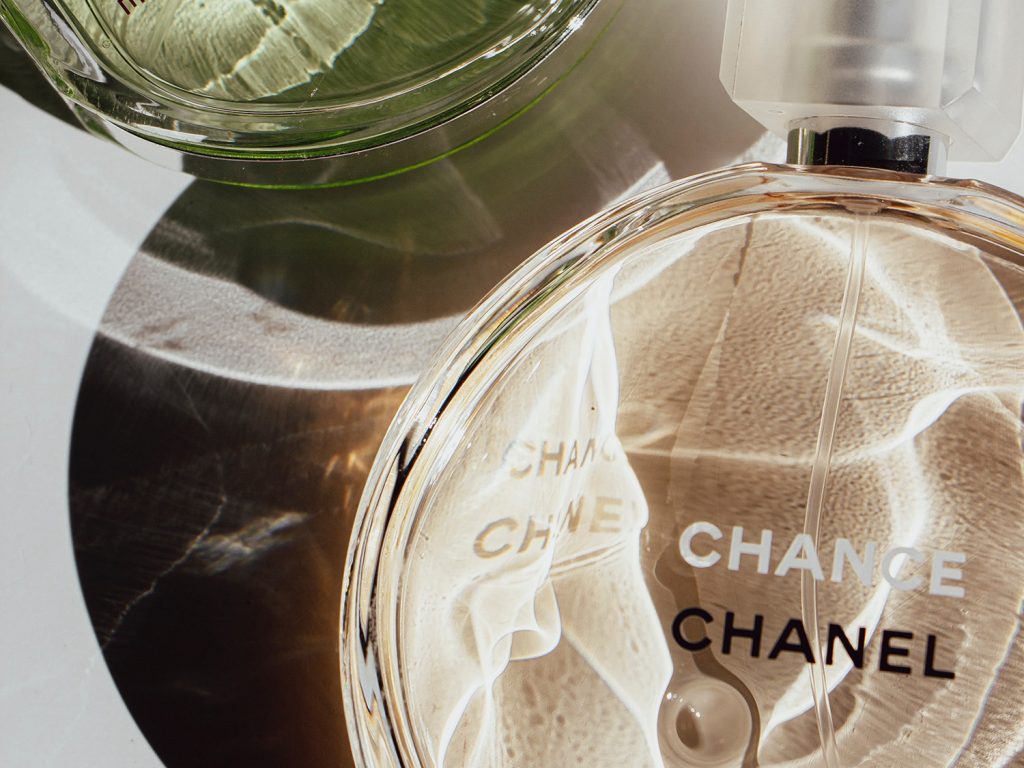
The Volatile Organic Compounds (VOCs) comprising fragrances are definite triggers for respiratory and skin problems in susceptible individuals. Many people are sensitive to synthetic fragrances. In the UK, these are listed as separate ingredients once they are included at a certain concentration in products. This allows consumers and dermatologists to better pinpoint the cause of allergic reactions.
Not all synthetic fragrance is unhealthy when included at a safe level, nor indeed are all natural fragrances are safe. I urge you to read plenty about the subject to keep yourself informed.
The key in pregnancy is to keep things simple. Buy unfragranced personal care products where possible. Buy from small indie brands or transparent brands who can tell you for certain what fragrance they’re using in a formulation. Also check out my natural fragrances for use during pregnancy for some ideas on mild and gentle fragrance during pregnancy.
Essential oils during pregnancy
Many women choose to avoid essential oils completely starting with the first trimester of pregnancy. Then, in the second and third trimesters, they introduce a select few essential oils that are known to have greater benefit over risk – such as lavender, mint, and lemon.
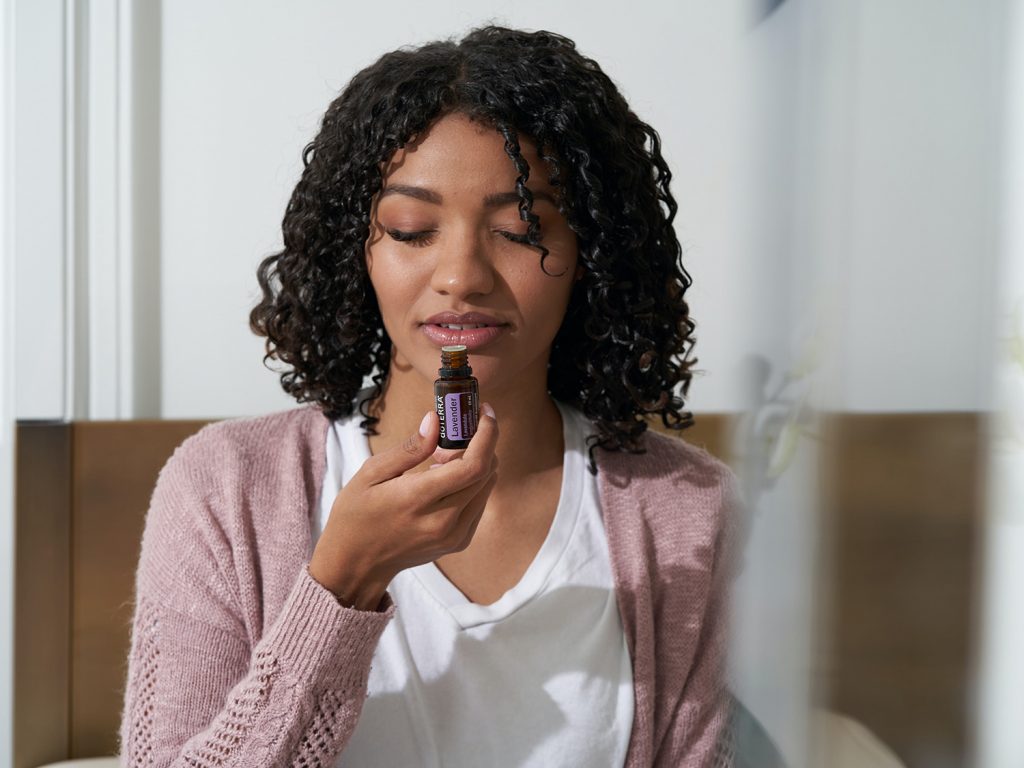
However, there is a difference between an essential oil used in a small amount, say to fragrance and add benefit to a body lotion, and a therapeutic concentration. This is why so many Weleda products use rose essential oil – an oil thought to cause uterine contractions, in their pregnancy safe products.
Some oils are helpful during labour but you wouldn’t want to use them in large concentrations before term – essential oils like clary sage, and jasmine. But they make a great labour massage oil!
The sensible advice is to avoid essential oils during the first trimester, then reintroduce them as needed during the second trimester – always observing the correct usage for each essential oil available from the manufacturer. During labour, make the most of essential oils that are considered helpful during labour and use them in a labour massage oil. I like Natalia Labour Massage Oil.
Is chemical sunscreen safe during pregnancy?
The dangers of chemical sunscreens are only just coming to light. Recent studies have shown that the chemical filter oxybenzone can pass through the placenta to the baby, causing problems during its development. To be on the safe side, swap to a physical sunscreen. Try Suntribe mineral sunscreens.
Treating acne during pregnancy
If you’re planning to get pregnant, you need to talk to your doctor right away to find out if the medication or topical treatments you use are safe during pregnancy.
To treat acne during pregnancy, use a mild cleanser twice per day. It may take some trial and error to find the right cleanser. Try an exfoliating acid containing salicylic acid at 2% once per day – this is considered a safe acne treatment during pregnancy. Moisturising is a key step – try to find one that’s fragrance free and especially for acne-prone skins.
Avoid all retinoids, such as retinol, tretinoin, and adapalene.
Check out this page on acne from the NHS which details acne treatments that are safe during pregnancy.
In a nutshell
Consider:
- Stopping using products with retinol during pregnancy.
- Eliminating essential oils in the first trimester.
- Using only pregnancy safe essential oils in the second and third trimesters. Be sure to follow safe usage of essential oils i.e. correct dilution.
- Starting to use a sunscreen to protect against hyperpigmentation.
- Switching from a chemical sunscreen, to a physical sunscreen.
- Swapping bubble baths for bath oils.
- Lowering the temperature of your shower or bath water.
- Switching to unfragranced versions of your current skincare products.
- Moisturising your body daily.
- Using a moisturiser or balm specifically for your belly, breasts and thighs to “prevent” stretch marks.
- Introducing topical magnesium to reduce bodily discomfort.
References
- Safety of skin care products during pregnancy.
- Aromatherapy and pregnancy.
- Do Synthetic Fragrances in Personal Care and Household Products Impact Indoor Air Quality and Pose Health Risks?
Final thoughts on creating a pregnancy safe skincare routine
I hope you’ve enjoyed this guide on creating a pregnancy safe skincare routine. With a few tweaks it’s easy to adapt your routine for a safe and comfortable 9 months.
How have you adapted your skincare routine during pregnancy? Let me know in the comments section below – I’d love to hear from you.
Why not subscribe to my blog and follow me to stay up to date with all my posts?
Until next time!

